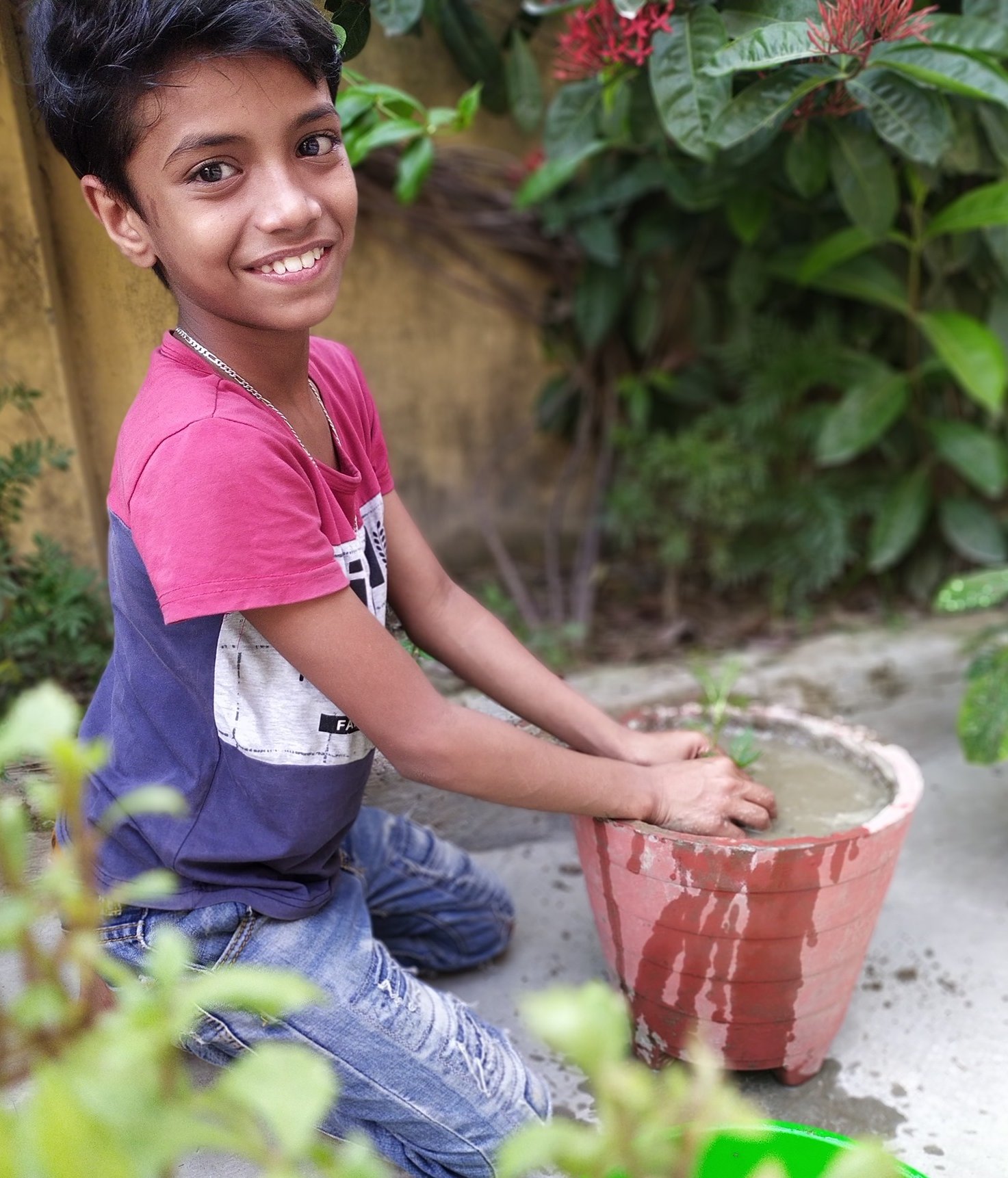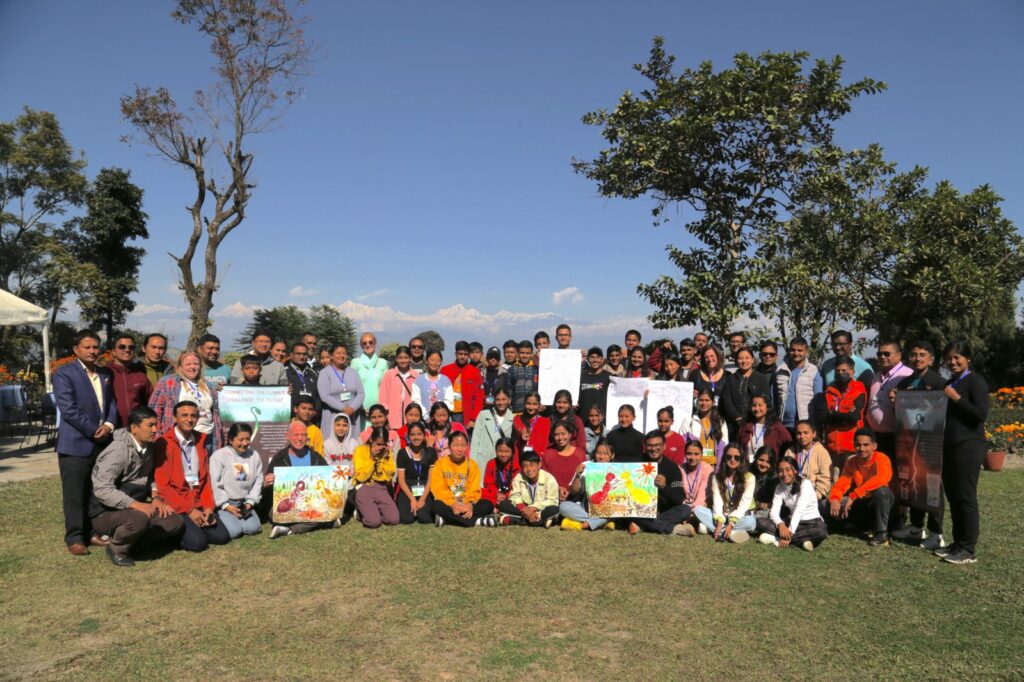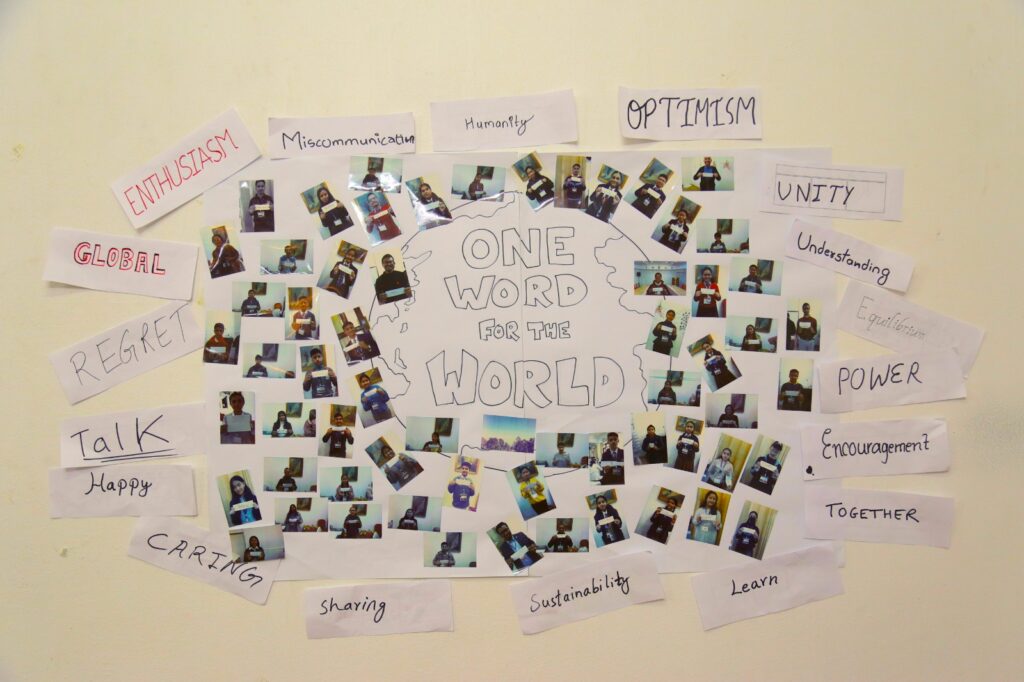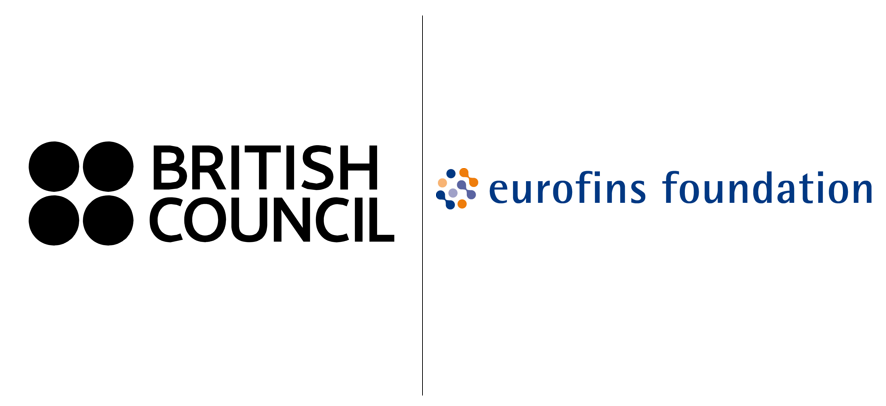March 2020 Ongoing
Connecting the Climate Challenge
Partnering and Empowering Communities to Tackle the Climate Crisis
Connecting the Climate Challenge (CCC) is an initiative of Engage Nepal with Science in collaboration with Tribhuvan University, Teach for Nepal and the Midlothian Council (UK, Scotland). 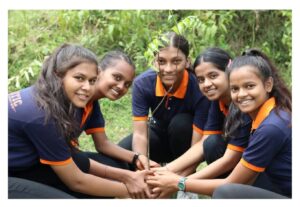
Connecting the Climate Challenge connects communities in Nepal and the UK to share their different but complementary experiences to climate change and work together towards finding solutions to tackle the climate crisis using an interdisciplinary approach that includes digital technologies, science and art as platforms to educate, raise awareness and problem solve. Schools covering the main climatic areas of both the UK and Nepal are the primary audience, as they act as excellent entry point to the wider community.
The aim of this initiative is to empower Nepalese and British communities to make real change and become positive role models to raise environmental awareness and inspire climate action while building, what we hope will be, long-lasting bridges between their communities.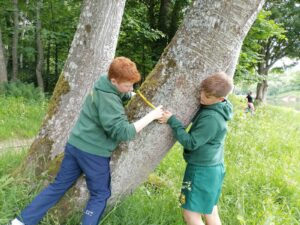
Through this initiative we also aim to give underrepresented communities a voice in the climate debate and reduce inequalities by levelling up schools from both countries.
CCC was originally supported in 2021 by the British Council as part of the COP 26 Creative Commissions for the Climate. From the beginning of 2022, this project has also been supported by the Eurofins Foundation. We also receive in-kind support from the Edinburgh Climate Change Institute.
Project Milestones
1. Capacity building and empowerment in environmental educ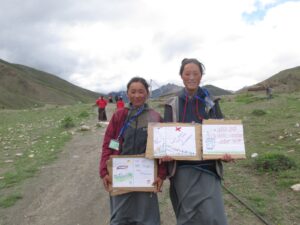 ation using an interdisciplinary and creative approach through experiential learning, citizen science and global citizenship tools
ation using an interdisciplinary and creative approach through experiential learning, citizen science and global citizenship tools
2. Give underrepresented communities a voice in the climate debate and support them to spread the knowledge and skills needed to address the climate crisis
3. Find innovative solutions to tackle climate change through students/community leadership and building long-lasting bridges between communities
4. Showcase the communities’ work through media actions to raise awareness on global issues and inspire climate action
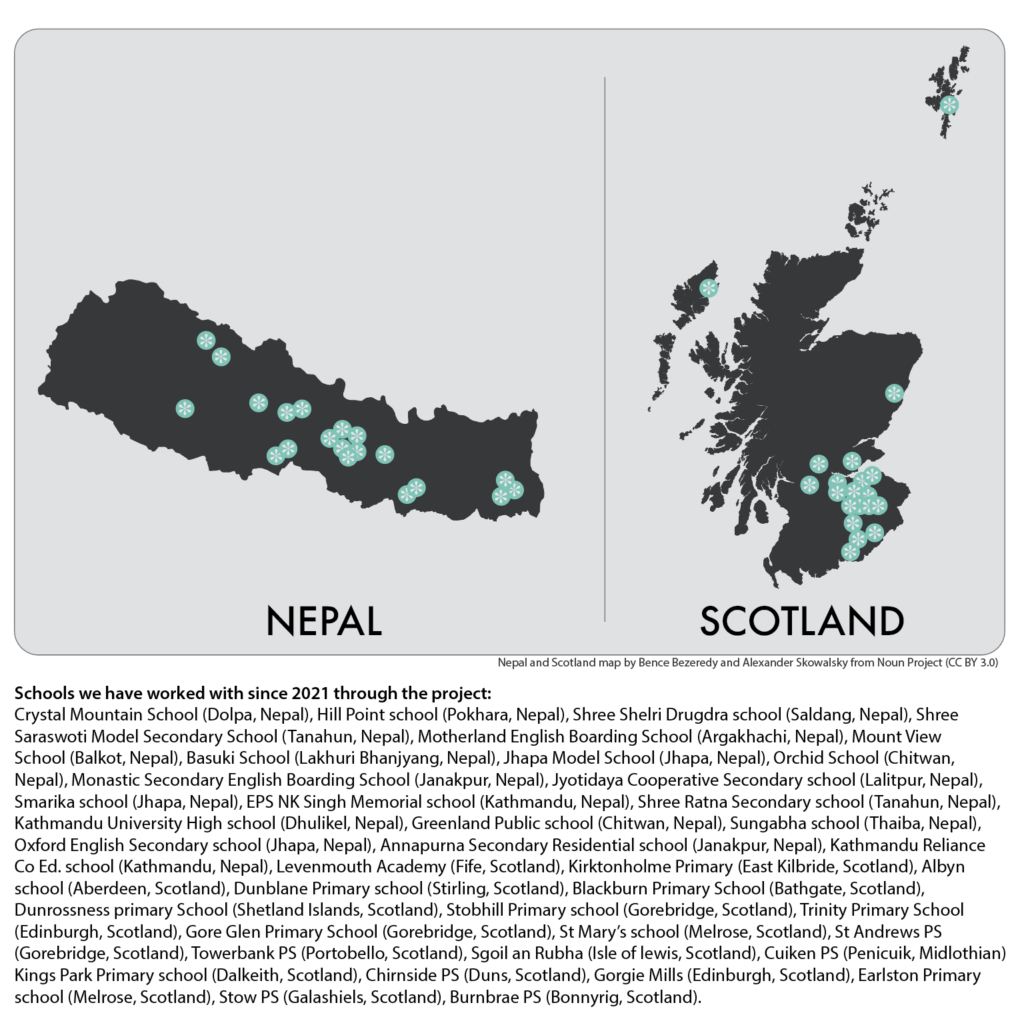 In 2021 we started with ten schools in Nepal and ten in the UK that in 2022 mentored another school each into the project via our mentoring scheme. We have now worked with forty schools so far (please see below the map of the schools we have worked with since 2021 through this project) and continuing our very successful mentoring scheme adding ten schools more each year, which will ensure sustainability and increase the impact of the project.
In 2021 we started with ten schools in Nepal and ten in the UK that in 2022 mentored another school each into the project via our mentoring scheme. We have now worked with forty schools so far (please see below the map of the schools we have worked with since 2021 through this project) and continuing our very successful mentoring scheme adding ten schools more each year, which will ensure sustainability and increase the impact of the project.
We will soon be broadening our reach to schools in Europe, so if you are a school outside the UK and you are interested in being partnered with a school in Nepal, please get in touch!
What Schools Have Done So Far
- Global citizenship: Schools establish eco-committees that share their different experiences of living in a changing climate with their partner school and work together to take climate action, to reduce our impact on the environment and live a more sustainable life.
- Citizen science: Eco-committees perform parallel environmental measurements with their partner school to understand the effects of climate change and find solutions to tackle the climate crisis both locally and globally. Eco-committees also work with environmental researchers to discuss their results whilst boosting their critical thinking and gaining scientific skills.
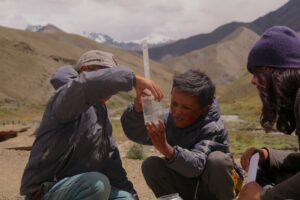
- Taking climate action: Eco-committees have been leading their own climate actions that include:
1) Organising regular river clean ups and litter analyses in their local areas
2) Running tree plantation programs
3) Implementing plastic-free initiatives at the schools and local communities
4) Hosting National Climate Change Conventions where they invite other schools, heads of their municipalities and other community representatives to discuss about the need for urgent climate action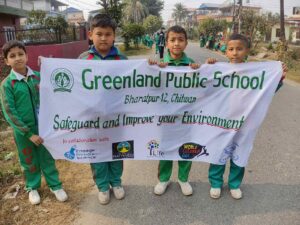
5) Organising social media campaigns and being part of debates and school summits like the Youth climate café run by British Council Nepal or the 1.5Max Global school Climate summit, to showcase the breath of climate action initiatives undertaken, enhance public engagement and inspire climate action.
- Spreading the impact through arts and media: Eco-committees work with visual artists and videographers (Neil Bratchpiece – Comic book artist, Srijanalaya – group of visual artists, Chhaproma Studios and Into Film – videographers)
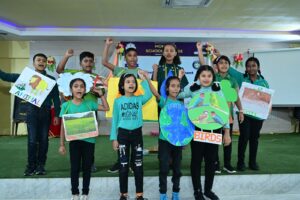 and engage their communities using arts and media as platforms to empower in environmental education and promote environmental awareness. Experiencing the power of arts and media to spread the impact of their work, eco-committees have also participated in several film-making competitions, like Camera Sika X Road to COP26 competition where several of our partner school were shortlisted and won prizes.
and engage their communities using arts and media as platforms to empower in environmental education and promote environmental awareness. Experiencing the power of arts and media to spread the impact of their work, eco-committees have also participated in several film-making competitions, like Camera Sika X Road to COP26 competition where several of our partner school were shortlisted and won prizes.
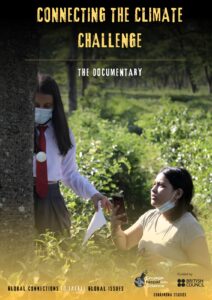
Congratulations to Motherland English Boarding School and Crystal Mountain School that won the competition with their two documentaries The Lonely Steps of a Farmer (Most liked film) and Climate Change in the Himalayas (Climate Change award).
Eco-committees also played a very active role on the creation of our Connecting the Climate Challenge: The Documentary video-documentary which has been featured at several film and science festivals including the Al Sidr Environmental Film Festival (Abu Dhabi).
Other Project Highlights
- In 2022 we organised a networking event called Connecting the Climate Challenge-The Future in Dhulikhel (Nepal) where ten Nepalese schools attended (with seven representatives from each school, including educators and students) to reflect on challenges and opportunities arising from the project and to share initiatives and climate action plans. As part of this event, we also invited a Scottish, a Nepalese artist and a Nepali videographer to attend the event and create a collaborative art piece and extend our CCC documentary. We aim to organise more of these networking events as they represent a great opportunity for eco-committees to share their work and inspire each other while realising that they are part of an important network of like-minded citizens.
- Every year we give prizes for the best innovative solutions to environmental issues to celebrate the work of the eco-committees. The prizes are in the form of resources that further support eco-committees implement their climate action plans.
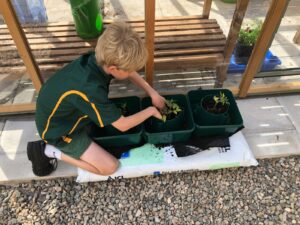
- The project has led to the development of the Green Detectives mobile app (funded by the European Society for Evolutionary Biology) that connects like-minded schools to share changes in their local environment due to climate change via gamification. We now plan to grow the app into a website that will be run by the eco-committees to stay connected and further spread their work.
- CCC has been published as a case study by the National Centre for Academic and Cultural Exchange (NCACE) and can be found at the NCACE Evidence Repository. We have also been part of the ‘Live at COP26’ and ‘Live at COP27’ massive open online courses (MOOCs) put together by Learning for Sustainability Scotland.
Thanks to the British Council and Eurofins Foundation for funding! And thanks to Edinburgh Climate Change Institute for the support!
Keep an eye on this page for updates!

